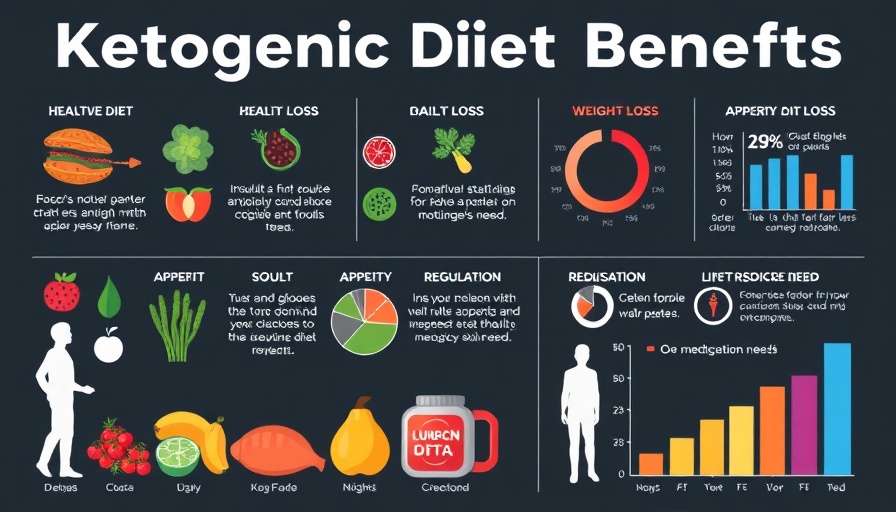
Can Keto Beat Diabetes Medications?
In recent years, the keto diet has surged in popularity, especially among individuals looking to manage their blood sugar levels and alleviate the burden of diabetes medications. As research continues to unveil the impacts of a high-fat, low-carb lifestyle, many men aged 35 to 55—often balancing busy careers and active lifestyles—are intrigued by the potential of keto to offer an alternative to traditional diabetes medications.
Decoding the Keto Diet
The ketogenic diet promotes a significant reduction in carbohydrate intake, pushing the body into a metabolic state known as ketosis, where it burns fat for fuel. By lowering carbohydrate consumption to under 50 grams per day, individuals often experience lower blood sugar levels, improved insulin sensitivity, and potential weight loss. Research from various studies indicates that many participants with type 2 diabetes have successfully managed their condition through this dietary approach, showcasing the possibility of reducing or even eliminating the need for diabetes medications.
Understanding the Controversies
Despite the promising benefits, the keto diet is not without its controversies. The effectiveness of keto in clinical practice remains debated. Some experts argue that while ketogenic diets may provide short-term advantages, there is insufficient long-term data to advocate for their widespread use among all diabetes patients. The diversity in individual health conditions complicates matters further, as what works for one person may not necessarily work for another. Current guidelines from organizations, such as the American Diabetes Association, suggest a more balanced approach to carbohydrate intake that may include various dietary options.
Benefits: Beyond the Basics
The potential benefits of a keto diet for those with diabetes extend beyond blood sugar control. Many individuals report improved energy levels, weight loss, and even favorable changes in their lipid profiles, including increased HDL (good) cholesterol levels. Furthermore, some studies have shown promising results for reversing prediabetes, a condition that often precedes the onset of type 2 diabetes. However, these outcomes can vary greatly depending on the individual's overall health and the specific formulation of their keto diet.
Risks and Considerations
Engaging with the keto lifestyle also entails risks, particularly for men in this demographic. Symptoms such as hypoglycemia from drastic carbohydrate reductions can lead to dangerous health effects, necessitating careful monitoring of blood sugar levels. More critically, there is the risk of diabetic ketoacidosis (DKA), a potentially fatal condition arising when ketone bodies accumulate in excess. Not all individuals may be fit for such a restrictive diet, particularly those with type 1 diabetes or pregnant individuals, who may face severe complications.
Making the Switch: Practical Tips for Success
For those considering transitioning to a keto lifestyle, practical steps can ease the learning curve this diet demands. Individuals can start by tracking their carbohydrate intake with mobile apps designed for carb counting, making the process smoother. Additionally, consulting a healthcare provider or dietitian ensures personalized guidance, focusing on sustainable fat sources and addressing potential deficiencies in fiber and micronutrients.
Future Trends: What Lies Ahead
As research evolves, the conversation surrounding the keto diet and its role in diabetes management is likely to shift. Ongoing studies aim to clarify the long-term effects of prolonged carbohydrate restriction and identify the ideal dietary patterns for various populations. As more data emerges, healthcare professionals may refine their approaches, potentially including keto as a viable option within a broader dietary framework for diabetes management.
Conclusion: Making Informed Choices
The keto diet presents a compelling option for managing diabetes, especially for active men looking to improve their health and potentially reduce their reliance on medication. However, it is crucial for individuals to engage with healthcare professionals, weigh benefits against potential risks, and consider their unique health circumstances. Adopting a collaborative approach with medical experts will facilitate informed decisions that align with personal health goals.
 Add Row
Add Row  Add
Add 




Write A Comment